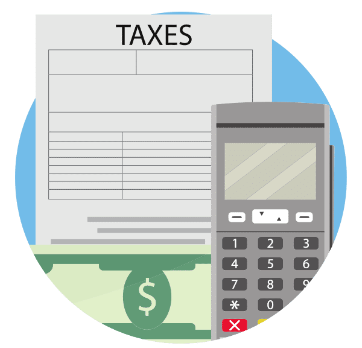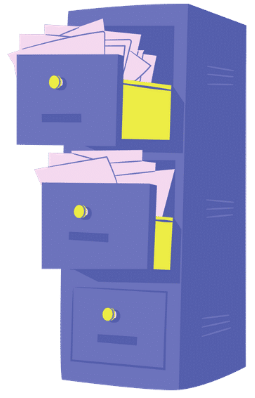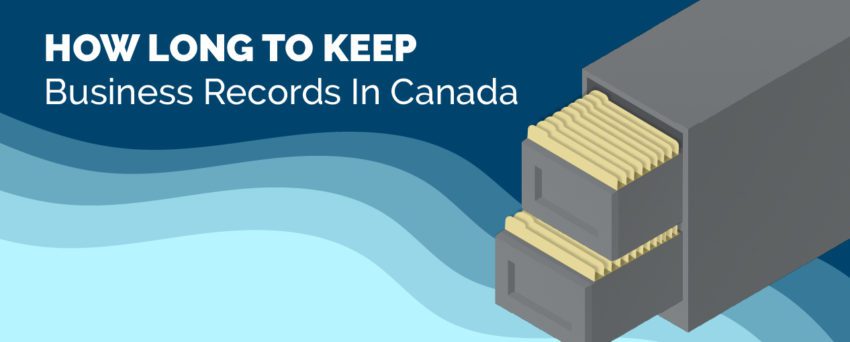24Mar 2022
All businesses operating in Canada, from multinational corporations to the smallest start-ups, are required to keep business records for six years. A document management solution like Docudavit stores these important records and assures compliance with provincial and federal legislation and policies.
The six-year general rule of the Canada Revenue Agency
So, according to the Canada Revenue Agency (CRA) requirements, the general rule for document conservation requires that company documents shall be kept for six years after the end of the last fiscal year to which they relate. Therefore, as an example, business records from the 2021 tax year must be kept until the end of 2027.

It is important to take into account that the six-year period begins late if the tax returns are filed late. For that reason, we recommend keeping all supporting documents for seven years. Other exceptions to this general six-year rule are detailed below.
The task of filing, saving, and maintaining a large volume of documents is exhausting and time-consuming. Docudavit helps companies with document storage, making this process more convenient, efficient, and secure.
Which documents must businesses store in Canada?
Here is a summary of the documents that businesses must store in Canada:
- Sales invoices
- Purchase receipts, contracts
- Emails
- Guarantees
- Bank deposit slips, cancelled cheques
- Cash register slips, credit card receipts
- Purchase orders
- Work orders
- Delivery slips
- General correspondence in support of a transaction

In what format should you keep these documents?
Traditionally, these records were kept in paper format, although keeping electronic records is also accepted by the CRA, and this option has become increasingly popular. A secure and compliant document management system is key to preserving those records for as long as necessary in a digital, risk-free, and organized way.
The CRA requires that, whatever the methodology, the records kept by a business have to:
- Be reliable and complete.
- Provide the taxpayer with the correct information to comply with tax obligations and calculate the credits to which the company is entitled.
- Be backed up by supporting documents to verify the data contained in the records.
- Include other documents, such as appointment books, log books, income tax, and value added tax (GST/HST) returns, scientific research and experimental development (SR&ED) vouchers, and records that assist in determining the company’s obligations and entitlements.
Exceptions to the six-year rule
Although the general rule is that these business records must be kept for six years, in some situations, you may retain these records for a different period of time. Below is a list of these situations, as well as the retention periods that apply to each of them:
Upon the explicit request of the CRA
If the CRA wants you to keep the records for a period longer than six years, a CRA officer will contact you to let you know how long you should keep them.
Long-term acquisitions and disposal of property records
When your records and supporting documents concern long-term acquisitions and disposal of property, the share registry, or other historical information that would affect the business’s sale, liquidation, or closure, you have to keep them indefinitely.
When an income tax return is filed late
If you file an income tax return late, you must keep your records for six years from the date you file that return, as stated before.
GST/HST related exceptions
If you have not filed a GST/HST return for a reporting period that ended more than six years ago, you are still required to file the return and retain the records to support the amounts reported on the return. On the other hand, if you issue a tax adjustment note for GST/HST to a pension entity, you must keep the related records for six years from the day you issued the tax adjustment note.

When you filed an objection or appeal
If you filed an objection or an appeal, you must keep all necessary records until the latest of the following dates:
- The date the objection or appeal is resolved
- The date for filing any further appeal has passed
- The six-year record-keeping period has passed
When a non-incorporated business ends
In such cases, the records must be retained for six years from the end of the fiscal year in which the company concluded.
When a corporation is dissolved or merged
If a corporation is dissolved, related records must be kept for two years after the date of its dissolution. When corporations merge to create a new corporation, this new corporation must usually keep the business records of each merged corporation for six years from the end of the taxation year to which they relate.
If you are the legal representative of a deceased taxpayer or trust
In this case, you can destroy the records after receiving a clearance certificate(s) to distribute property under your control.
Can you discard business records before the CRA’s six-year period?
As we have seen, documents must be kept between six and seven years, or even more, to comply with the Canada Revenue Agency requirements. But, what if a company wants to keep them for less than six years?
The CRA states that you are allowed to destroy accounting books and records at a time prior to the stated time if you receive written authorization from them. If these documents, whether in paper or electronic form, are destroyed without the express permission of the CRA, they could prosecute the business.

Keeping records organized
Last but not least, these documents must be stored in an organized manner. That is not just a suggestion but a requirement of the CRA. Using a professional document management solution is a great way to keep all of your documents stored safely and securely destroyed when the time comes. Contact us and tell us what your needs are – we will adapt to them.

